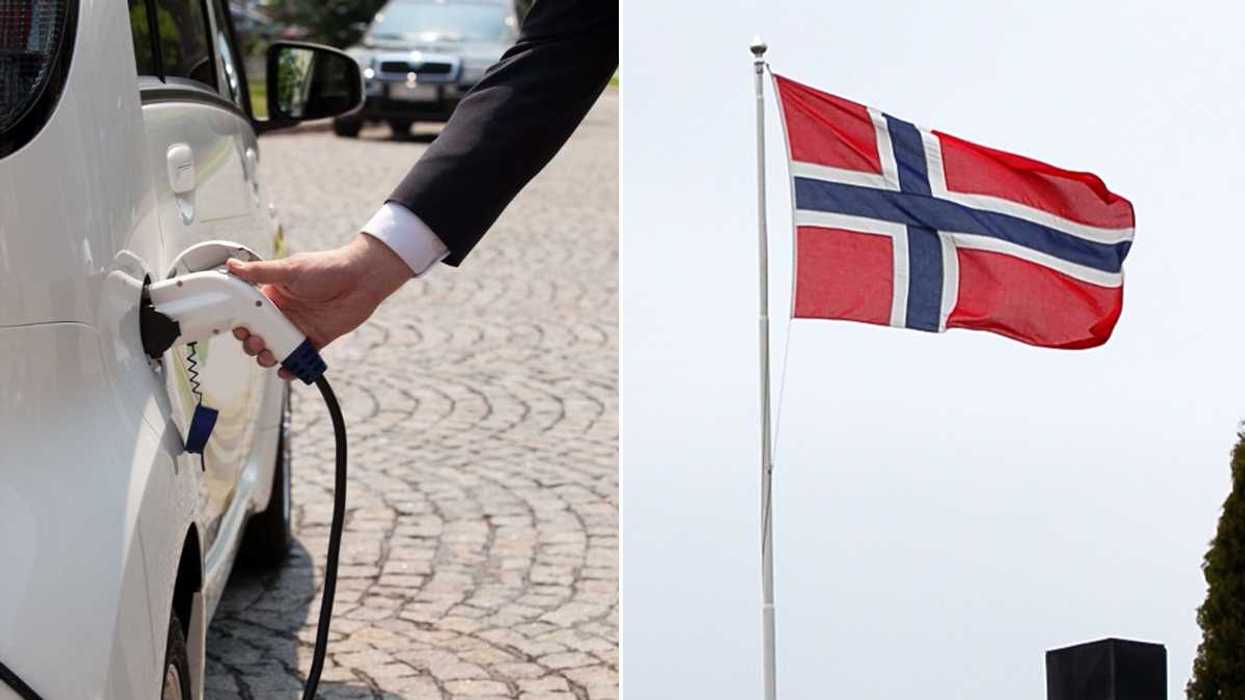Amazon's "The Man in the High Castle" debuted the first episode of its final season last week.
The show is loosely based on an alternative history novel by Philip K. Dick that postulates what would happen if Nazi Germany and the Empire of Japan controlled the United States after being victorious in World War II.
When the show first debuted in 2015, the idea of a fascist United States was ridiculous concept, but given the country's embrace of a wannabe autocrat in Donald Trump, it seems eerily prescient.
The show hit a little too close to home for some Trump supporters who thought the show's Resistance Radio station that urged listeners to fight back against fascism seemed anti-Trump.
If libtards, gays and weirdos don't like @realDonaldTrump, we can send them to special camps to teach them manners! #ResistanceRadio
— Bryan Finnegan (@Deeplora_Bull) March 10, 2017
According Chelah Horsdal, who plays Helen Smith in the series, its producers proudly "proudly destroyed" every swastika prop used in the series after it wrapped.
She posted a video of a leather swastika patch being destroyed by a rotary cutter on Twitter. After the swastikas are cut into tiny pieces they are thrown into a box labeled, "Burn Pile."
Super satisfying...
Reminder that High Castle proudly destroyed all the swastikas that were produced for the show. pic.twitter.com/ecW445OWhB
— Chelah Horsdal (@chelahhorsdal) November 16, 2019
RELATED: The Internet Debates: Is it OK to punch a Nazi?
The image of the swastika being sliced and diced is a pleasant image to watch. We may debate whether it's ok to punch a Nazi but everyone is ok with a swastika being destroyed, right?
Nope.
A few commentators on Horsdal's post protested the destruction of the swastikas.
Seems very hypocritical, the company made its money from having lots of swastikas, and once the money has been made, it destroys them, virtuously - but if it felt like that, why create the show in the first place? Could have done a story change to alter the logo subtly?
— ωιηѕтση ѕмιтн (@123db_GEEK) November 16, 2019
Annnd these were used for a show about nazis.
— ⚪️Y2Kotic (@Y2Kotic) November 16, 2019
This prompted the actor to shut down her mentions. "Lotta assholes out there. Who knew the position 'nazi swastikas are bad' would be so controversial," she wrote.
Wow. Lotta assholes out there. Who knew the position 'nazi swastikas are bad' would be so controversial. #BlockingParty
— Chelah Horsdal (@chelahhorsdal) November 17, 2019
But the majority of people out there know that Nazis = bad and loved seeing the props destroyed.
For me, as a Jew there is an unexpected release 😭 in watching that being done. @ferdosnandos Thank you for sharing.
— Deborah sobel (@Deborahsobel1) November 16, 2019
this was satisfying on several levels
— Lorax (@LoraxOfSex) November 18, 2019
pic.twitter.com/H6QHx28lJ8
— Jon Stout (@jon_stout) November 17, 2019
















 Leonard Cohen performs in Australia in 2009.Stefan Karpiniec/
Leonard Cohen performs in Australia in 2009.Stefan Karpiniec/  Enjoying a sunset.Photo credit
Enjoying a sunset.Photo credit 



 Amoxicillin is a commonly prescribed broad-spectrum antibiotic.
Amoxicillin is a commonly prescribed broad-spectrum antibiotic.  Chart: The Conversation, CC-BY-ND
Chart: The Conversation, CC-BY-ND
 An envelope filled with cashCanva
An envelope filled with cashCanva Gif of someone saying "Oh, you
Gif of someone saying "Oh, you
 Two penguins play by the waterCanva
Two penguins play by the waterCanva
 A parking lot for charging electric vehicles.Photo credit
A parking lot for charging electric vehicles.Photo credit  Oil production.Photo credit
Oil production.Photo credit  Sun shines over the Earth.Photo credit
Sun shines over the Earth.Photo credit